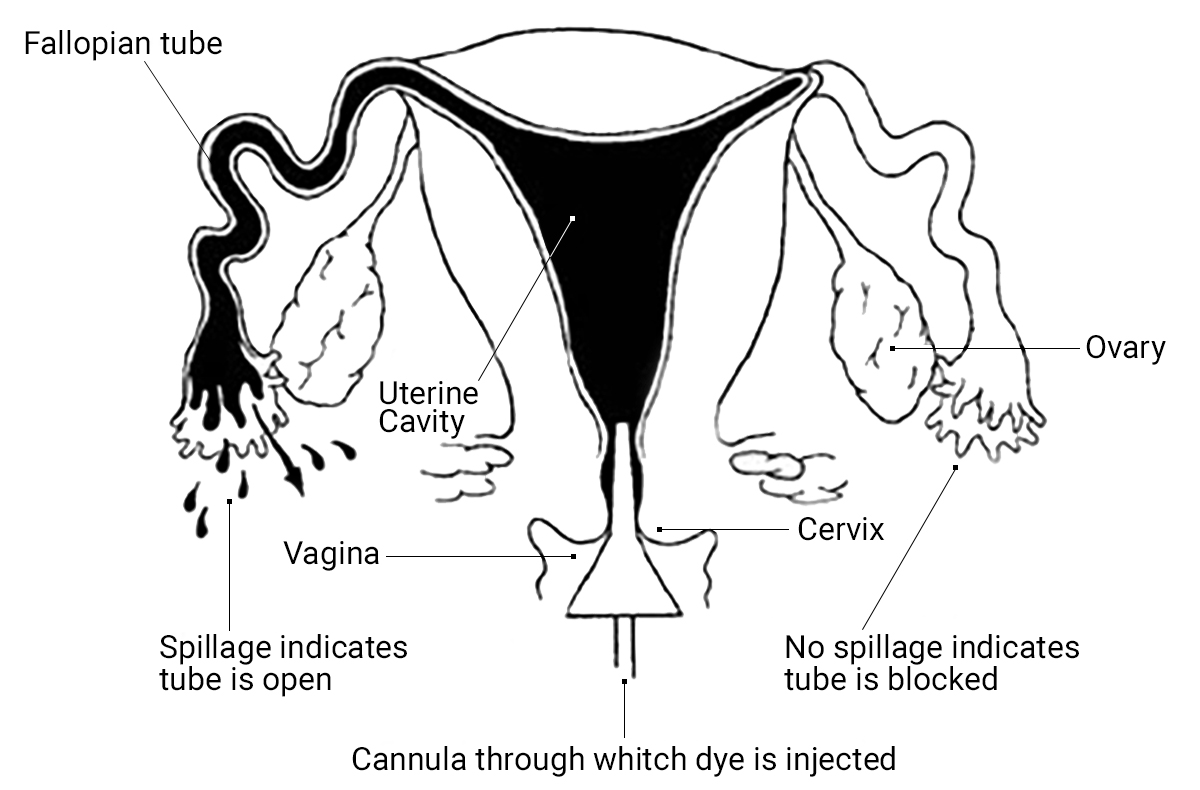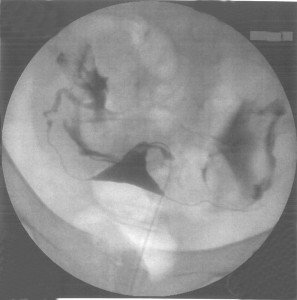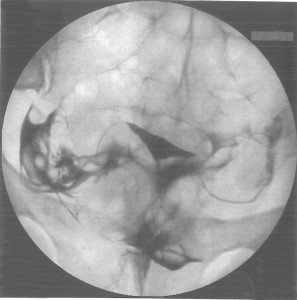Hysterosalpingogram (HSG): Advanced X-Ray Testing
In female fertility testing, HSG is an X-ray used to view the inside of the uterus and fallopian tubes, helping to evaluate the shape of the uterus and whether or not the fallopian tubes are open or blocked.
During the procedure, dye is inserted into the uterus and followed by x-rays as it “flows back” through the fallopian tubes. In a normal HSG, the dye flows freely through the reproductive tract. An accumulation of the dye at a point in the tubes usually indicates the presence of an obstruction or complete tubal blockage.
The HSG test is required after a woman has undergone the implantation of a permanent contraceptive device such as Essure® or Adiana®, to confirm blockage of the fallopian tubes by the device. It is usually done after the menstrual period has ended, but before ovulation, to prevent interference with an early pregnancy.
IVFMD’s Hysterosalpingogram (HSG) test is performed by a board-certified reproductive endocrinologist (RE) on site, reducing the cost for our patients, while also improving quality and convenience. Results are immediately available in the comfort of an office-based setting.
HSG FAQs
-
Although an HSG usually causes mild or moderate uterine cramping for five to ten minutes, some women may experience cramps lasting several hours. The symptoms can be greatly reduced by taking medications used for menstrual cramps, but you must speak with your physician to be sure this is acceptable for your specific case. Women may want to have a family member or friend drive them home after the procedure.
-
Prior to the HSG, you should:
- Talk to your physician about the test: how it is done, what are its risks, how the test will help with your treatment, and any other questions you may have.
- Tell your physician if you are or might be pregnant. A pregnancy test will be performed before your test to confirm that you are not pregnant.
- Tell your physician if you have or may have a pelvic infection.
- Inform the physician if you are allergic to iodine dye or shellfish.
-
After your HSG:
- You can immediately resume normal activities but may be asked to refrain from sexual intercourse for several days.
- Spotting commonly occurs for a day or two after the HSG, as some of the dye leaks out of the vagina. There may also be slight vaginal bleeding and the use of sanitary napkins is recommended. Do not use a tampon.
- Additional symptoms may include feeling dizzy, faint, or nauseous, as well as cramps.
- If an abnormality is noted on the HSG, your physician will discuss the steps available to correct the issue.
-
These images are for educational purposes and you should consult your physician for a proper diagnosis.
-
These images are for educational purposes and you should consult your physician for a proper diagnosis.
-
An HSG is considered a very safe procedure. However, there is a set of recognized complications, some serious, that occur rarely.
-
Infection – The most common serious problem with HSG is pelvic infection, which usually occurs when a patient has previous tubal disease. In rare cases, infection can damage the fallopian tubes and/or necessitate their removal. The patient should call her physician if she experiences increasing pain or a fever within one to two days of the HSG.
-
Fainting – The patient may get light-headed during or shortly after the procedure.
-
Radiation Exposure – Radiation exposure during the HSG is very low, less than with a kidney or bowel study, and there have been no demonstrated ill effects from this radiation, even if conception occurs later the same month. The HSG should not be done if pregnancy is suspected.
-
Iodine Allergy – A patient may have an allergy to the iodine contrast used in an HSG and should inform her physician if she is allergic to iodine, intravenous contrast dyes, or seafood. Women who are allergic to iodine should have the HSG procedure performed without an iodine-containing contrast solution. If a rash, itching, or swelling is experienced after the procedure, the physician should be promptly contacted.
-
Spotting – Spotting commonly occurs for one to two days after the HSG, but any heavy bleeding should be immediately reported to the physician.
-
-
Most major medical insurances are accepted. Special self-pay pricing available.
*Ask for a referral*
Schedule a Fertility Consultation with HSG in South Florida
Schedule your consultation at one of our fertility clinics in Miami, Boca Raton, Cooper City, Jupiter, Naples, or Viera, FL.



